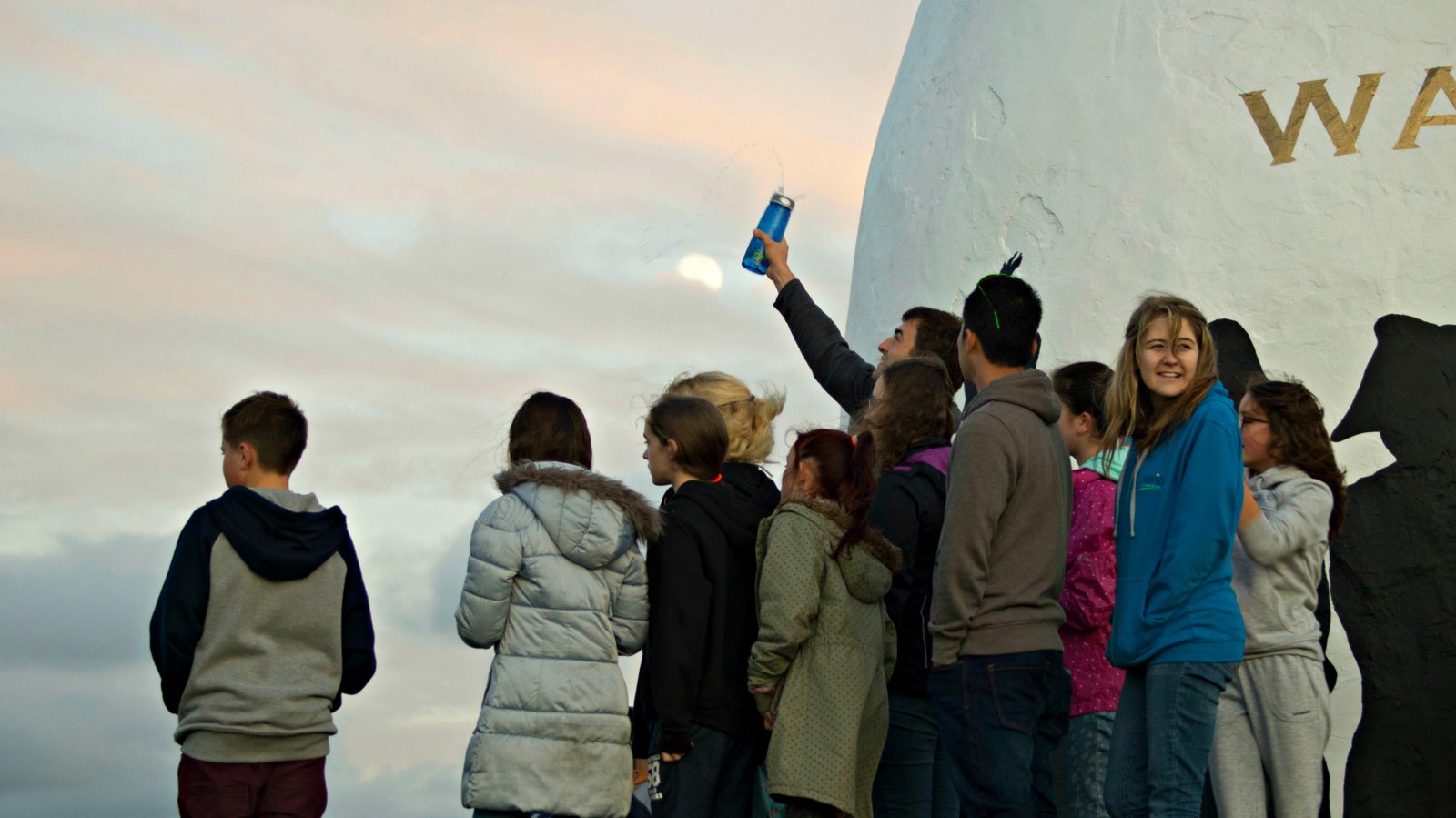Discovering the sacramental nature of school
Posted: Mon, 27 Apr 2020 11:57
The fourth in our series of articles by a Catholic teacher explores the 'sacramental nature of reality' and how we can find it in our schools. Photo: a school group visiting Savio House with teachers and volunteers at White Nancy.
Like many RE teachers, I have dutifully taught my pupils about the Seven Sacraments, generally starting in Year 7, developing an understanding of the rites, signs and symbols of the sacramental journey, through to GCSE. The GCSE 1-9 specification required more than basic definitions and outlines of each the sacraments. Pupils have to articulate the 'sacramental nature of reality'. This is a challenge! Yet it has forced many an RE teacher to fully reflect themselves on just what the sacramental nature of reality is, and how this relates to the sacramental nature of school.
Schools are holy ground: the sacred space which we share as a community reveals the sacramental nature of reality. To put it simply, the Church teaches that the material universe reveals the divine nature of God. Everything that exists has a divine DNA. Since all creation is the work of God, the created order contains God. This is the truth of Genesis, where we are told God said 'let there be . . . and it was good'. When we are open to the divine in all things, we can experience the sacrament of the present moment. When we can we are awe-struck by the beauty of a sunset, we are open to the divine. The recent pink moon took my breath away; to me this was God revealing God's self through the beauty of creation. St. Francis of Assis in his canticle 'Brother Son and Sister Moon' praised the divine DNA in all things, so that he could call the universe his brothers and sisters. How inclusive! To be a truly inclusive community we must be open to the awesome truth that the pupils and staff are icons of the Lord, living sacraments.
To stand still, draw breath, be silent and experience the sacrament of the present moment is a blessing, which in the busy school day, we often deny ourselves. Yet to do so is to nourish ourselves at the deepest level. The grace we gain from this will fill our hearts and souls so that we, as the teachers, can feed our pupils. Within my current school, De La Salle Academy in Liverpool, there are four opportunities a week to pause and 'take a moment'. These grace-filled moments of communal prayer strengthen our community and draw us deeper into the mystery that is God.
To embrace the sacramental nature of reality in our school communities is to see each member of the community as a sacrament, seeing each pupil and adult as unique creation made in the image and likeness of God. This is evangelical inclusion. The great pedagogues of our tradition, De La Salle & Bosco, to name but two, had this evangelical inclusion at the heart of the mission; no one was excluded, because they held dear to the sacramental nature of reality and to the sacramental nature of each of their children.
As teachers, we should always remind ourselves of this truth – and enjoy the sacrament of the present moment when God reveals God's self through our daily interactions with children. How often do we 'waste time' with our pupils? By this I mean 'holy' time. Break and lunch duties should be just that, times when we can forget the demands of the curriculum and waste beautiful time with our pupils. Time where we can look at the children in front of us as more than a 'Grade 7' or a 'Pain'! Not that we do! Yet a time to talk about the ordinary, the hopes, fears, dreams and expectations. Wasting holy time is what I sure Don Bosco meant when he said the teacher who only appears in the classroom is an instructor, but the teacher who spends time in play is a friend. Residential retreat centres such as Savio House Bollington and Saint Cassians's in Kintbury offer well-structured programmes as well as opportunities to waste 'holy time'. I have learnt more about my pupils walking to White Nancy or playing football on the lawn at Kintbury than in two terms of lessons. It is these moments that are sacramental.
The same is true of staff. The staffroom should be considered 'holy ground', where staff can break bread, let off steam and revel in each other's company. More has been learnt about teaching over a cup of tea or coffee than a hundred hours of formal CPD.
To recognise the living Lord in all things is to see the school as a sacramental community. To pause and enjoy with wonder and awe the sacrament of the present moment: a child laughing, a challenging question, a kind word in the staff room, is a blessing. And if the school is lucky enough to be able to celebrate the sacrament of the Eucharist, the school experiences the summit of the sacramental life.
Michael Bennett
